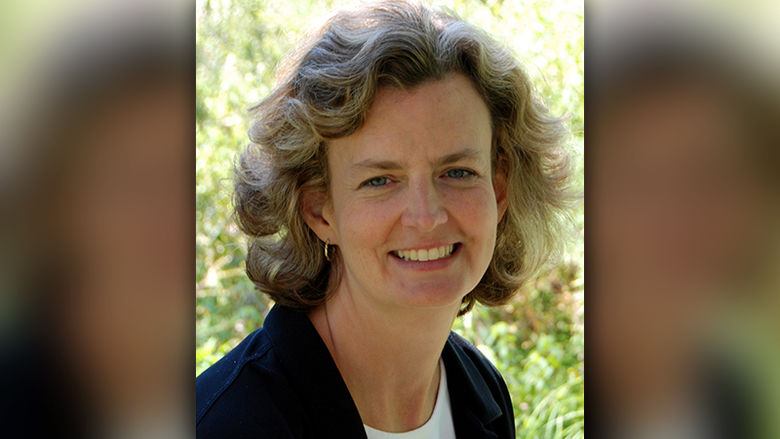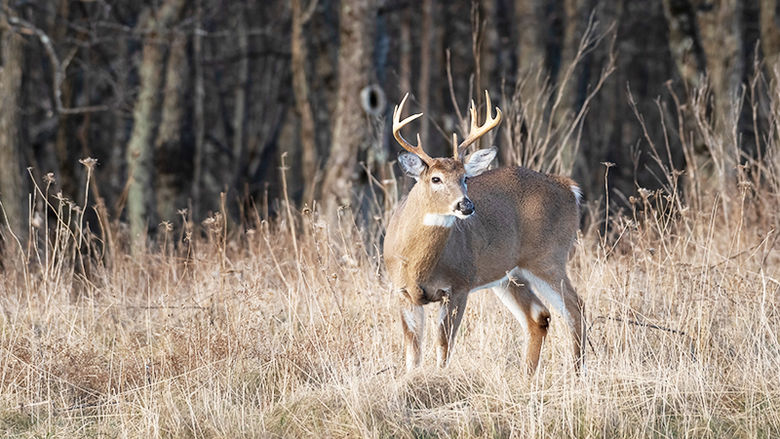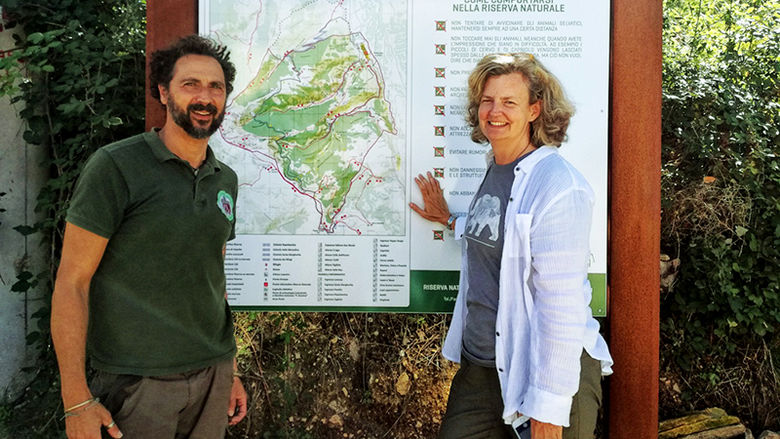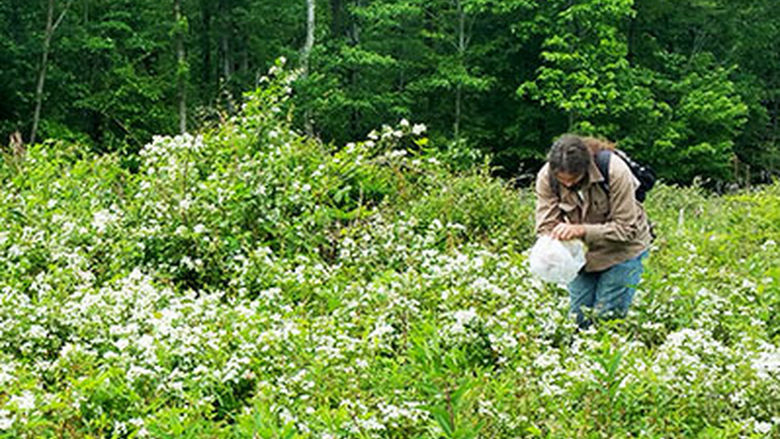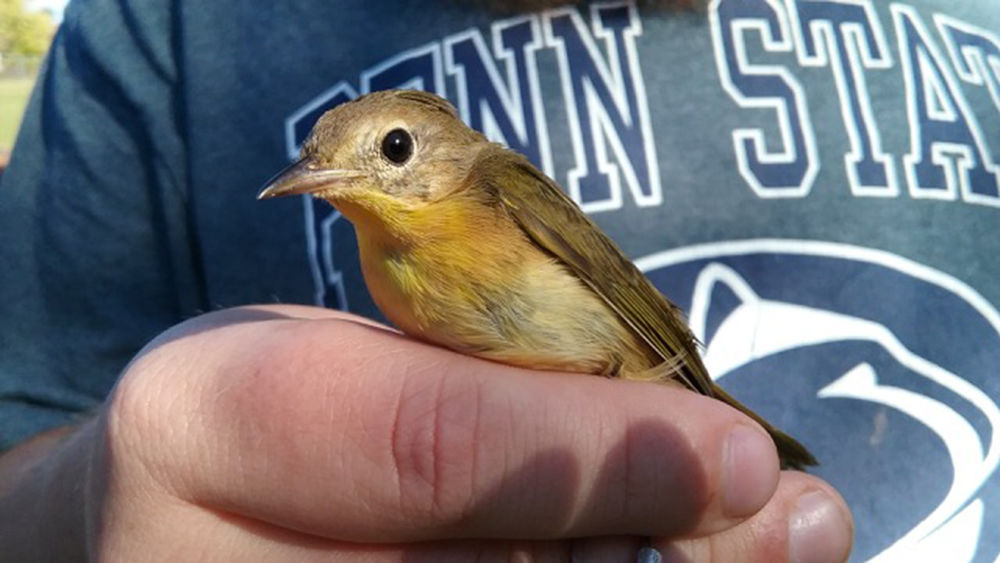
Working in the field within ecology and environmental studies is critical because the topics of interest such wildlife, water, forests, and air, are located outside. Penn State Altoona professors and instructors recognize the value and importance of students experiencing hands-on learning.
Students enrolled in Biology 444, Ecology of the mid-Atlantic, had such an opportunity on Oct. 3 when they traveled to Penn State Dubois to learn about bird migration and bird banding with biology professor Carolyn Mahan.
Emily Thomas, Penn State Dubois wildlife instructor maintains a Migratory Bird monitoring site and showed students how birds are captured via mist-netting, marked with numbered leg bands, and released in order to monitor their migration patterns and overall health. Birds captured while students were visiting the site included Northern Cardinal, Common Yellowthroat, and Song Sparrow.
"Field-based inquiry brings students into direct experiential contact with these parts of larger ecological systems," states Mahan. "Recent pedagogical research conducted at Carleton College and Vanderbilt University among others has provided evidence that field-based learning deepens student enthusiasm about a topic and increases his/her learning potential. Field-based learning also fosters close working relationships among faculty and students and increases topic discussion and shared discovery of knowledge."
